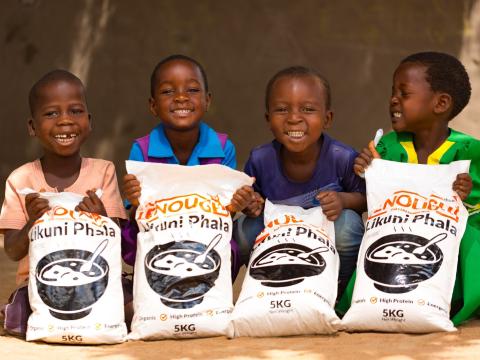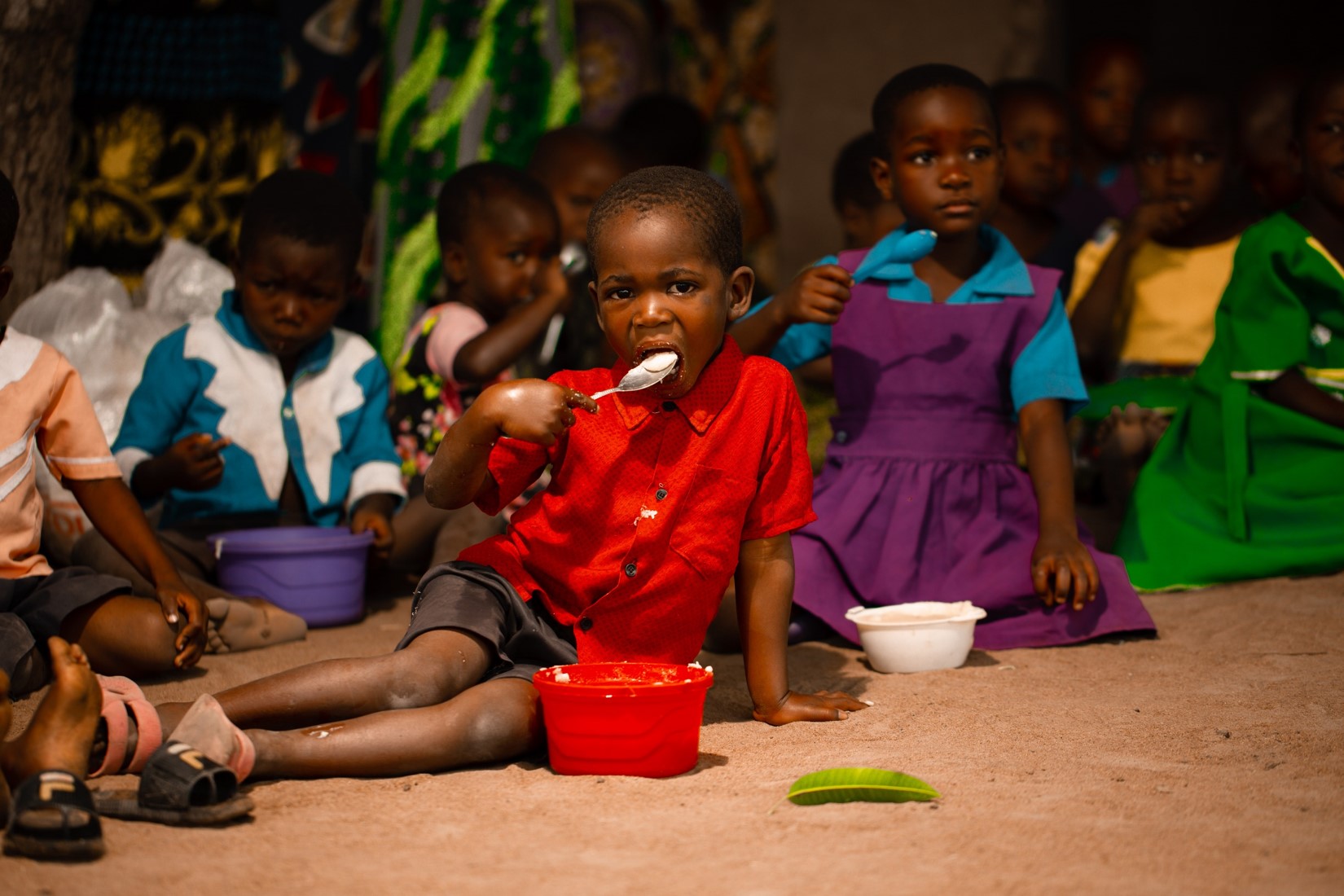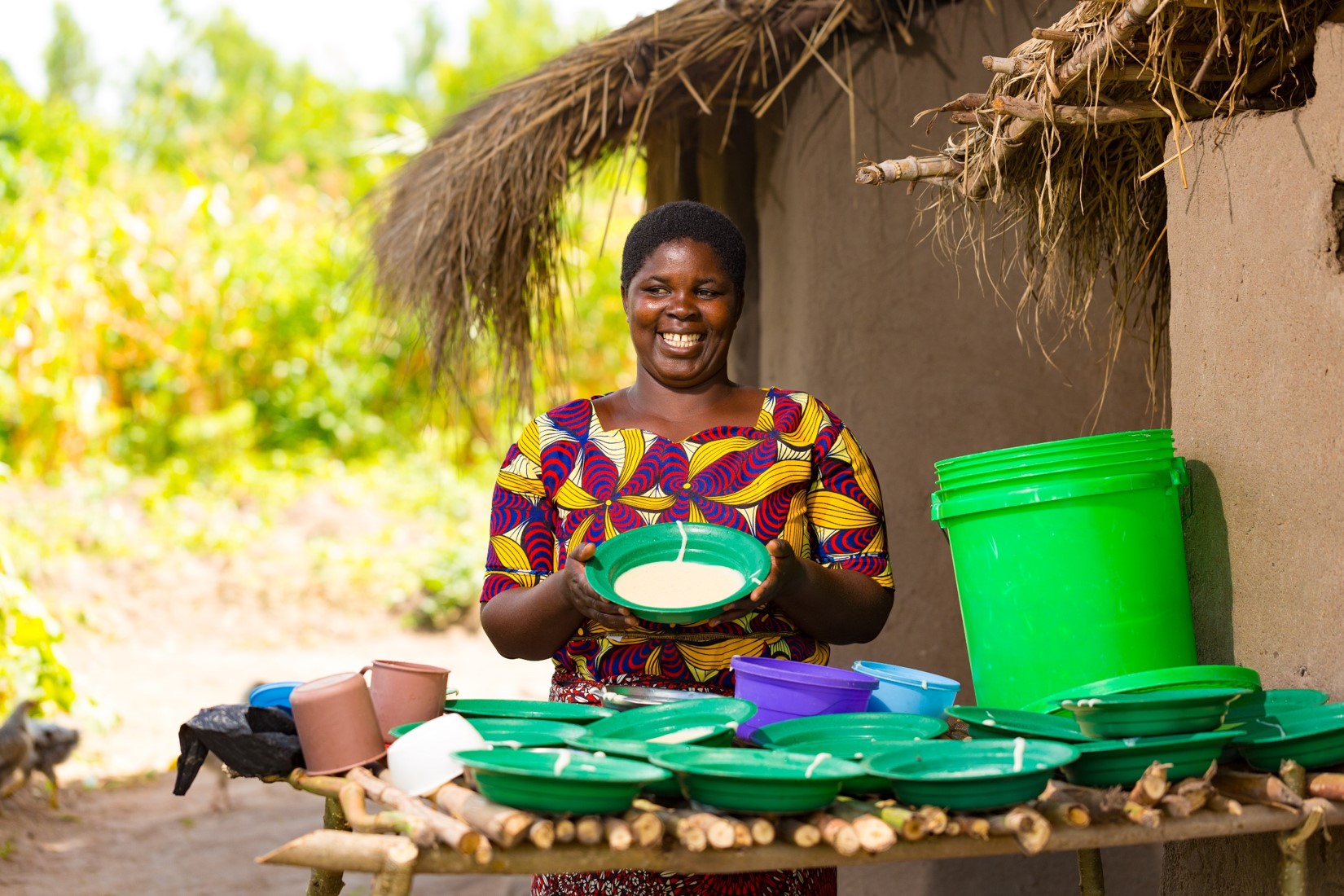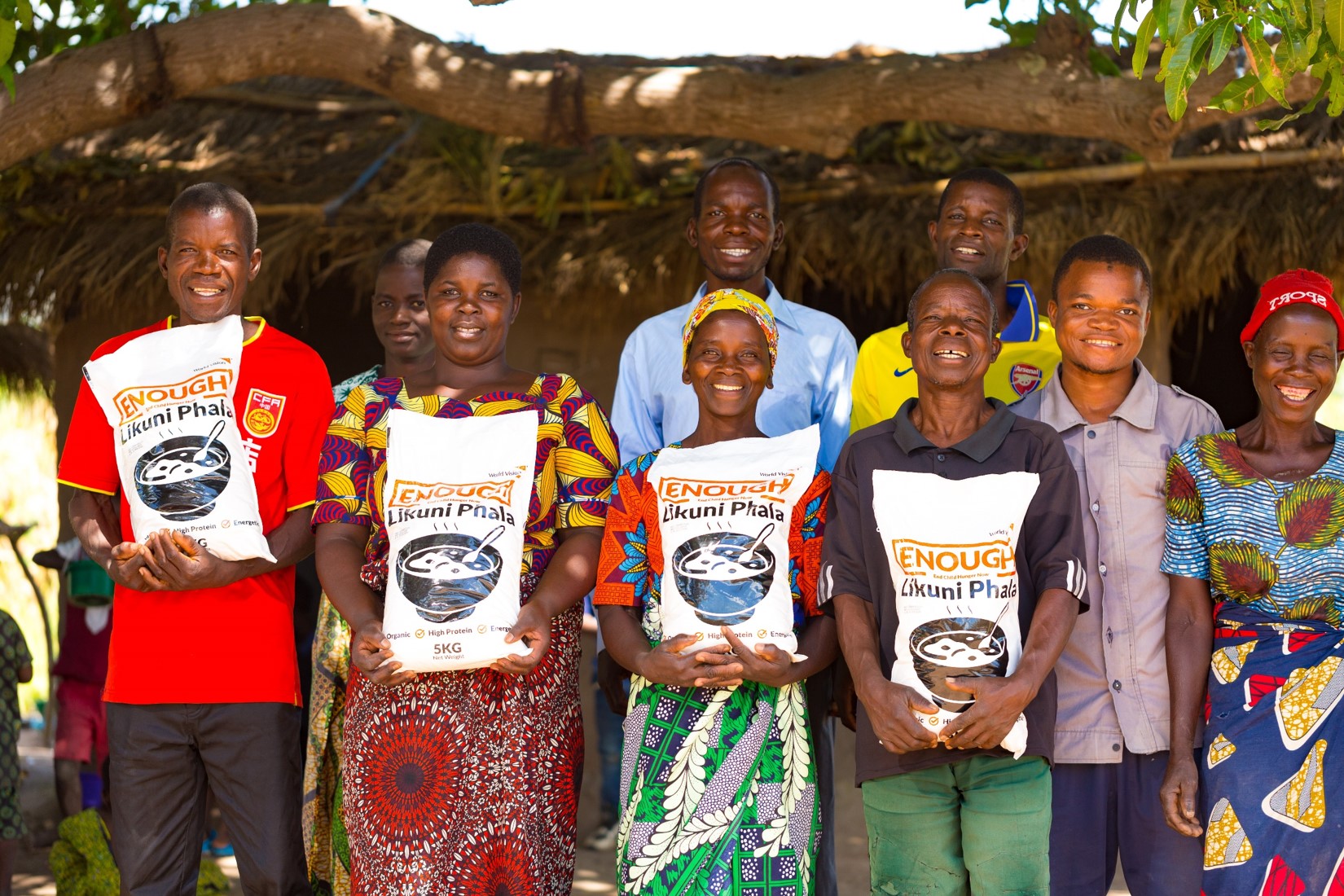More Than a Meal: How School Feeding is Transforming The Lives of Children in Phalombe District of Malawi

By Trinity Kubalasa.
World Vision Malawi, Communications and External Engagement Manager.
In the heart of Nahuwo village, TA Jenala in Phalombe district, a quiet transformation is taking place. At Tilimbike Community-Based Childcare Centre (CBCC), children no longer struggle to stay focused in class due to hunger. Instead, they arrive eager to learn, their small bodies energised by the promise of a warm meal. The school feeding programme has sparked hope, drawing more toddlers to the centre and reaffirming education as a pillar of the community’s future.
“Parents are now keen to send their children here because they know the little ones will receive a meal,” says Eliza Michael, CBCC committee chair.

The difference in their faces is clear
Since the programme began, enrolment has jumped from 32 to 54 children. But the biggest changes can’t just be counted but felt also. Children are smiling more, playing harder, and learning faster. Malnutrition is dropping, and village leaders are noticing.
“This initiative is shaping the future of our children. They are more active, more focused, and growing strong.” Village Headman Nahuwo.
This success story is made possible through the ENOUGH Campaign intervention that is implementing school meal program through distribution of fortified Corn Soy Blend to CBCCs, ensuring that children receive essential nutrients daily. World Vision's Enough Campaign school meals program is targeting 43000 children and currently the initiative has already reached around 62,000 children with school meals.
We Just Need a Little More Help.
Meanwhile, Benson has instituted strict measures to ensure that food remains solely for the children; maintaining the integrity of the programme. Sustaining and expanding this progress requires continued support. Eliza Michael urges stakeholders to invest in training caregivers and CBCC committee members, emphasising that capacity building is crucial for long-term success.

“We have the heart. Now we need the skills,” she says. “With proper training, we can give these children even better care.”
The school feeding program stands as a powerful reminder that a single meal can change a child’s future. It is a call to action for donors, organisations, and well-wishers to invest in a program that not only fights hunger but also promotes education, growth, and opportunity.

By sustaining and allocating more funding towards school meals program, stakeholders can ensure that children in Nahuwo village and beyond continue to thrive. Now is the time to act. Together, society can champion the cause of education, health for a better tomorrow.